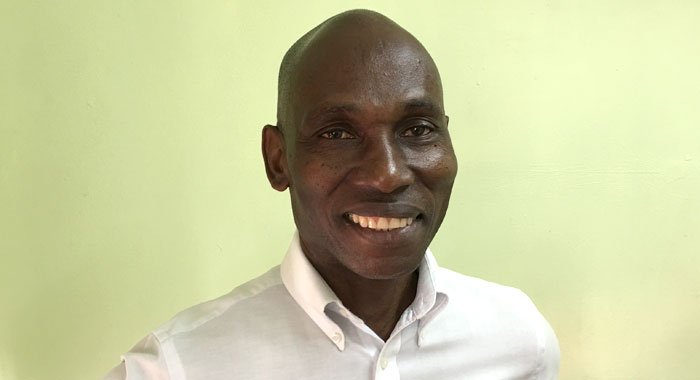
‘I cannot understand what would drive a police officer to treat a resident of any country in the way Cpl. Lavia behaved towards Mr. Fergus that morning. It was inhumane, merciless, aggressive, high handed and totally undeserved. The court cannot countenance such conduct in a democratic society where the rule of law pervades the administration of justice and the society.
‘If ever there was a case that attracted exemplary, aggravated and substantial general damages for loss, damage, physical, emotional and mental injury, this one certainly does.’ Justice Esco Henry ruling in the Fergus v AG of SVG.
‘Mr Thomas ah feel good. Ah ain’t have a cent in mi pocket, but I feel like a very rich man. Ah want to thank you and Ms. Barnwell.’ These were the words of Okeno Fergus seconds after high court judge Justice Esco Henry’s judgement in which Fergus sued Cpl Mohammid Lavia and the state of St Vincent and the Grenadines for assault and battery.
The sad tale began early on March 3, 2019, just outside Suzie’s Bar at Owia. At about 3:00 am that morning, Mr. Fergus and his friends travelled in two different vehicles to their home in Fancy. When they got to Owia, the driver behind signalled them to stop, and they did just outside of Suzie’s Bar. He indicated that he might have left his phone in Sandy Bay and was going back to get it.
Okeno and his friend Zarrack Bowen waited for him. About 5 minutes after their friend left for Sandy Bay, Okeno told the court he saw Cpl Lavia and his brother Marsh Lavia coming from Suzie’s Bar. Marsh greeted him, and he replied. Displeased with the greeting, Cpl Lavia told his brother, ‘You does talk to dem dotish man dey?’ Okeno replied, ‘Man, if me dotish, you dotish too.’ Incensed, Cpl turned back and inquired, ‘Way you say dey wha?’ Okeno repeated, ‘Me say if me dotish, you dotish too.’
Standing about 4 feet from him, Cpl Lavia pulled his service revolver from his waist and shot Okeno twice in the left foot. Cpl Lavia told Okeno, ‘Tek dat, you dotish MC.. .’ Okeno fell to the ground and was taken to the hospital, where he spent eight days. The shots shattered the bone in his foot, and the wound has not healed properly three years after the incident. During the period of his hospitalisation and for more than two months after, the police made no attempt to question, detain, arrest or charge Mr. Fergus.
Okeno, a farmer, cannot engage in the activities as before. He cannot bring the produce from his farm. He cannot play cricket, football, run, jump, stand, or walk for long periods. Sometimes he uses a cane to aid his walking and his foot pains early in the morning.
In June 2019, Okeno, aggrieved by the unprovoked, intentional assault and injury, filed a notice of intent to sue for his injuries. As Paul Keane Douglas says, ‘Who tell he do that?’ The police department jumped into action, went to Lowman (WD) where Okeno lives, and arrested and charged him for assaulting Cpl Lavia. He was tried at the Georgetown magistrate and found guilty. The magistrate ruled that he believed the police story and sentenced Okeno to 6 months in jail. Dissatisfied with the decision, Okeno appealed. The President of the Appeal panel, Justice Baptiste, overturned the conviction. He remarked that the m
agistrate mistakenly and improperly switched the burden of proof from the prosecution to the defendant.
At the civil trial, Okeno’s version of events was supported by his friend Zarrack Bowen. Zarrack told the court the morning after the incident Cpl Lavia and a party of police officers came to his home, took him to a lonely spot, beat him and tried to get him to make a false statement that Okeno had a gun. Both men denied that Okeno busted Cpl Lavia’s head with a bottle. They maintained that the shooting was intentional and unprovoked. Cross-examined, they told the court their versions of events were not made up, and they were being truthful. Justice Henry believed them.
The state brought two witnesses along with Cpl Lavia. Justice Henry found their evidence to be inconsistent, unbelievable and unreliable. Emran Lorraine and Lee John Jordan were found to be witnesses of convenience.
Based on the evidence before the court, Justice Henry entered judgment for Okeno Fergus against Cpl. Mohammid Lavia, the State of St Vincent and the Grenadines, ordered Cpl. Mohammid Lavia and the state to pay Special general, aggravated and exemplary damages with interest and cost.
While Justice Henry’s decision appears to be a significant victory for Okeno Fergus, his troubles are not yet over. He awaits retrial on the false accusation that he assaulted Cpl Lavia. Worse, the government of Fergus has a track record of refusing to recognise and respect our court decisions.
In a country governed by the rule of law, a court’s decision is readily honoured, but not here as we have seen with Otto Sam, Alenia Allen, the teacher’s election case of Daniel, Johnson and Thomas, the Public Service Union promotions, Randolph Toussaint case and others.
The unjustified shooting of Okeno Fergus highlights in graphic form the ways in which police officers brutalise, disfigure and kill innocent citizens. As counsel for Fergus told Cpl. Lavia, during Fergus’s trial on trumped-up charges in Georgetown, ‘Men like you should not be in the police force.’ The March 3rd 2019 shooting was not the first time Cpl. Lavia shot a citizen of this country.
One would think this case will cause the police high command or the Ministry of Justice to investigate and discipline Cpl. Lavia. Don’t hold your breath. Police officers frequently beat, maim and kill civilians and continue in the police force. In fact, some of the most brutal officers seem to rise fastest up the ranks.
As PM Gonsalves says, our police are like angels. Citizens are well advised to pray that, unlike Okeno Fergus, they don’t ever meet the devil in police uniform
The views expressed are not necessarily those of Asberth News Network all articles must be submitted to [email protected]




